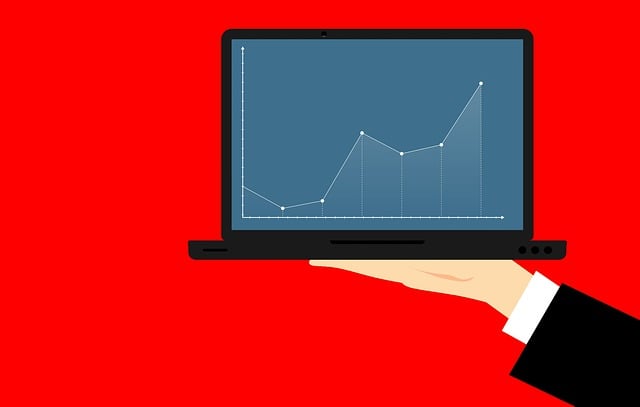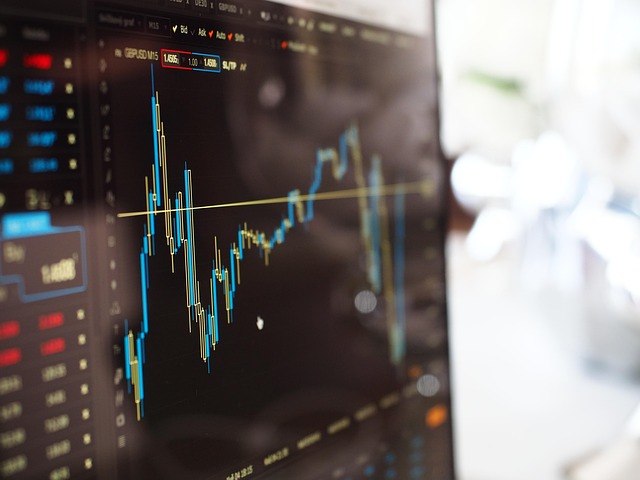Is Binance a Binary Trading Platform?
Author: Jameson Richman Expert
Published On: 2025-08-22
Prepared by Jameson Richman and our team of experts with over a decade of experience in cryptocurrency and digital asset analysis. Learn more about us.
When exploring the expansive and rapidly evolving world of cryptocurrency trading, a common question among investors and traders is: "Is Binance a binary trading platform?" This inquiry often arises due to misconceptions about Binance's product offerings and its role within the broader financial ecosystem. While Binance is undeniably one of the most influential and comprehensive cryptocurrency exchanges globally, understanding whether it facilitates binary options trading necessitates a detailed examination of its core functionalities, product suite, regulatory status, and operational framework. Clarifying these aspects is vital for traders to set realistic expectations, make informed decisions, and avoid misconceptions that could expose them to unnecessary risks.

Understanding Binance’s Core Business and Offerings
Binance operates as a multifaceted digital asset ecosystem, providing a broad spectrum of financial services tailored to various user profiles—from retail traders to institutional investors. Its primary function is as a cryptocurrency exchange, enabling users to buy, sell, and hold a multitude of digital assets. As of 2023, Binance supports trading in over 600 cryptocurrencies, including major assets like Bitcoin (BTC), Ethereum (ETH), Binance Coin (BNB), and a diverse array of altcoins, ensuring high liquidity, competitive spreads, and deep market depth.
Beyond traditional spot trading, Binance has developed an extensive ecosystem comprising:
- Derivatives Trading: Futures contracts, options, perpetual swaps, leveraged tokens, and more, allowing sophisticated speculation and risk management strategies.
- Staking & Savings: Earning passive income through staking various cryptocurrencies or depositing funds into flexible savings products, often offering competitive interest rates.
- Decentralized Finance (DeFi) Products: Liquidity pools, yield farming, and liquidity mining, enabling users to participate in decentralized financial protocols directly from Binance's platform or integrated DeFi solutions.
- Token Launchpad & IEOs: Participating in new token launches and Initial Exchange Offerings (IEOs), facilitating early access to promising projects.
- Educational Resources & Research: Comprehensive tutorials, webinars, market analysis, and insights designed to educate traders and promote responsible trading practices.
This diverse product suite positions Binance as a comprehensive financial hub, catering to a wide range of trading strategies—from straightforward spot trades to complex derivatives—rather than a platform focused solely on binary options.
Spot Trading and Derivative Instruments in Detail
Binance's core offering is spot trading, where users can execute buy and sell orders of cryptocurrencies at prevailing market prices, similar to traditional stock exchanges. Traders have access to advanced trading tools, order types (market, limit, stop-limit), and real-time market data. Complementing this, Binance provides derivatives trading through Binance Futures, offering contracts that allow traders to speculate on the future price movement of cryptocurrencies with leverage—sometimes up to 125x depending on jurisdiction and product. These derivatives include futures contracts, perpetual swaps, and vanilla options, often used by traders employing technical analysis, hedging, or leverage strategies.
Unlike binary options, these derivatives involve ongoing obligations, margin requirements, and dynamic profit-and-loss calculations based on market prices. They are structured as contractual agreements rooted in underlying asset prices, with mechanisms such as mark-to-market settlement, liquidation thresholds, and risk mitigation tools embedded within their design. Their complexity aligns them more with traditional financial markets than with simple prediction-based contracts like binary options.
What Are Binary Options and How Do They Differ?
Binary options are a distinct class of financial derivatives characterized by their simplicity and fixed payout structures. A binary option involves predicting whether the price of an underlying asset—be it a stock, commodity, or cryptocurrency—will be above or below a predetermined strike price at a specific expiry time. If the prediction is correct, the trader receives a fixed payout; if incorrect, the entire investment is lost. This "all-or-nothing" payout structure makes binary options inherently different from standard derivatives.
Binary options are often marketed as quick, straightforward trading tools suitable for beginners or speculative traders. However, their simplicity conceals considerable risks, including potential significant losses, and their reputation has been marred by associations with scams and unregulated operations. They are typically offered via specialized platforms that may or may not be regulated, with expiry times ranging from minutes to hours. This short-term, prediction-based nature closely resembles gambling rather than investing or traditional trading.
Common binary options platforms like MEXC, Bitget, and Bybit tend to focus exclusively on binary contracts, often integrating features such as social trading, automated binary bots, and fixed payout ratios. These platforms are often less regulated, and traders should approach them with caution due to the high risk of fraud, scams, and lack of transparency.
Comparative Analysis: Binance vs Binary Options Platforms
- Instrument Diversity and Trading Strategies: Binance offers a wide array of instruments—from spot trading and futures to options, enabling traders to craft complex strategies. Binary options platforms focus solely on prediction contracts with fixed payouts, limiting strategic flexibility and often appealing to short-term, high-risk traders.
- complexity and Risk Management: Binance’s derivatives involve leverage, margin controls, and risk mitigation tools—requiring traders to have a solid understanding of market mechanics. Binary options, with their all-or-nothing payouts and fixed expiry, provide minimal scope for risk control and are more akin to high-stakes gambling.
- Regulatory Environment and Legitimacy: Binance operates under regulatory frameworks in multiple jurisdictions, with ongoing efforts to enhance compliance and transparency. Conversely, binary options platforms have historically been associated with scams, unregulated operations, and regulatory bans in many countries, making them a high-risk choice.
- Underlying Assets and Operational Mechanics: Binance’s derivatives are based on real-time market data of cryptocurrencies, requiring understanding of price dynamics. Binary options are prediction bets based on predefined conditions, with outcomes determined at expiry, without ownership of the underlying asset.

Is Binance a Binary Trading Platform?
Based on its core services, operational structure, and product offerings, Binance **is not** a binary trading platform. Instead, it functions as a comprehensive cryptocurrency exchange and financial ecosystem providing a broad spectrum of trading options including spot trading, futures, options, and staking. While Binance does facilitate derivatives trading—specifically futures and options—these financial instruments are fundamentally different from binary options contracts.
Distinguishing Binance’s Derivatives from Binary Options
Binance Futures allows traders to open leveraged positions on cryptocurrencies, engaging in contracts that specify a future settlement or ongoing trading parameters. These derivatives are based on underlying asset prices and involve continuous margin adjustments, risk controls, and risk mitigation tools designed for experienced traders. They are used to hedge, speculate, or leverage positions based on market analysis.
Conversely, binary options are straightforward prediction bets that offer fixed payouts at expiry, with no ownership transfer or ongoing obligations. They have fixed expiry times (minutes to hours) and do not involve the underlying asset, making them more akin to gambling rather than strategic trading. The key distinction lies in the complexity, underlying mechanics, and regulatory treatment—Binance’s derivatives are regulated, sophisticated financial products, whereas binary options are often unregulated and associated with high risk and scams.
Regulatory and Educational Environment
Binance emphasizes responsible trading and investor education through extensive resources—tutorials, webinars, risk management guides, and market analyses. The platform actively works to comply with evolving regulatory standards worldwide, including licensing, AML (Anti-Money Laundering), and KYC (Know Your Customer) procedures, which enhance legitimacy and security for users.
In contrast, binary options platforms have historically been involved in widespread scams, misleading marketing, and operating in unregulated environments. Many countries have implemented bans or strict licensing regimes to protect consumers from fraudulent schemes. Therefore, traders should exercise caution, conduct thorough due diligence, and prefer regulated platforms aligned with legal standards.
Platforms Specializing in Binary Options: What to Know
If binary options trading aligns with your investment goals, it’s crucial to select platforms specifically designed for this purpose. MEXC, Bitget, and Bybit are examples of platforms offering binary prediction contracts with fixed payouts and short-term expiry times. However, traders must be aware of the high-risk nature of binary options and the regulatory gaps often associated with these platforms. Due diligence, understanding the high potential for scams, and prioritizing regulated, trustworthy environments are essential for safe participation.

Strategies, Automation, and Risk Management
Effective trading—whether binary options or derivatives—relies on employing robust strategies, disciplined risk management, and automation tools. For binary options, this involves predicting the correct direction within a chosen expiry window, managing trade sizes, and controlling exposure. For futures or spot trading, strategies include technical analysis, setting stop-loss and take-profit levels, and diversification.
Automation via trading bots, including Binance’s official tools or third-party systems, can help reduce emotional bias and execute systematic strategies. Resources like "When to Sell ETH in 2025" or "Binance Trading Bot Review" provide insights into automation, systematic trading, and risk mitigation techniques that can improve long-term trading outcomes.
Summary and Final Thoughts
In conclusion, Binance is **not** a binary trading platform. Instead, it stands as a leading global cryptocurrency exchange and comprehensive financial ecosystem offering a diverse array of trading instruments—including spot trades, derivatives, staking, and DeFi products—that cater to a broad spectrum of traders and investors. Its products are regulated (to varying degrees) and designed for informed, strategic trading, contrasting sharply with binary options platforms which often operate in unregulated environments and are associated with high risks and scams.
For traders interested in binary options, understanding the fundamental differences is vital. Engaging with well-regulated platforms, practicing diligent risk management, and continuing education are key to safeguarding investments. Additionally, resources such as "Bitcoin Price in 2035" and market analysis articles like "Bitcoin Bottom Reddit" can provide valuable insights for navigating the complex landscape of crypto trading and investment strategy.